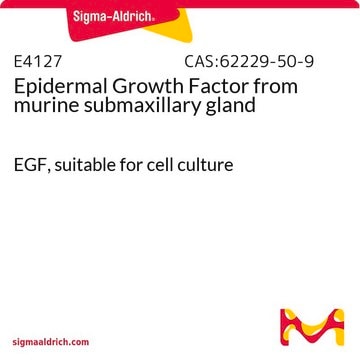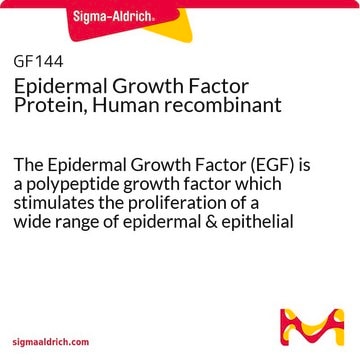D1667
Monoclonal Anti-Dynein (Heavy Chain) antibody produced in mouse
clone 440.4, ascites fluid
About This Item
Produits recommandés
Source biologique
mouse
Niveau de qualité
Conjugué
unconjugated
Forme d'anticorps
ascites fluid
Type de produit anticorps
primary antibodies
Clone
440.4, monoclonal
Poids mol.
antigen 440 kDa
Contient
15 mM sodium azide
Espèces réactives
human, chicken
Technique(s)
indirect ELISA: suitable
western blot: 1:100 using a chick brain extract or Kinesin enriched rat brain extract
Isotype
IgG2a
Numéro d'accès UniProt
Conditions d'expédition
dry ice
Température de stockage
−20°C
Modification post-traductionnelle de la cible
unmodified
Informations sur le gène
human ... DNAH1(25981) , DNAH2(146754) , DNAH3(55567) , DNAH5(1767)
Description générale
Immunogène
Application
- indirect immunofluorescence at 1:50 dilution
- immunocytochemistry
- enzyme-linked immunosorbent assay (ELISA)
- immunoblotting
- dot blot
Actions biochimiques/physiologiques
Forme physique
Clause de non-responsabilité
Vous ne trouvez pas le bon produit ?
Essayez notre Outil de sélection de produits.
Code de la classe de stockage
12 - Non Combustible Liquids
Classe de danger pour l'eau (WGK)
nwg
Point d'éclair (°F)
Not applicable
Point d'éclair (°C)
Not applicable
Certificats d'analyse (COA)
Recherchez un Certificats d'analyse (COA) en saisissant le numéro de lot du produit. Les numéros de lot figurent sur l'étiquette du produit après les mots "Lot" ou "Batch".
Déjà en possession de ce produit ?
Retrouvez la documentation relative aux produits que vous avez récemment achetés dans la Bibliothèque de documents.
Notre équipe de scientifiques dispose d'une expérience dans tous les secteurs de la recherche, notamment en sciences de la vie, science des matériaux, synthèse chimique, chromatographie, analyse et dans de nombreux autres domaines..
Contacter notre Service technique








